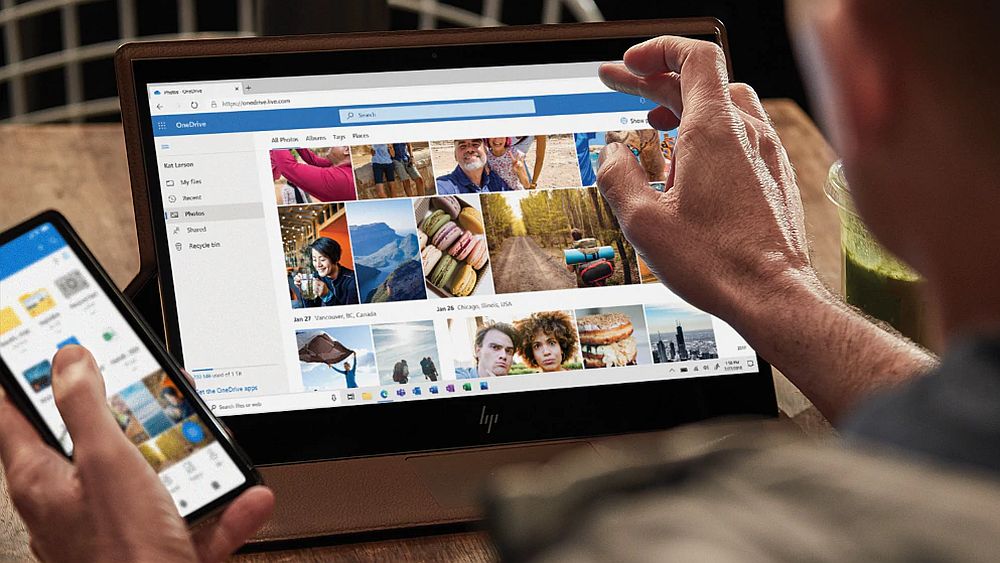Microsoft was quick to drop this Windows 11 pop-up that took annoying to new levels
Quitting OneDrive sync in Windows 11? Not so fast…

Microsoft has reversed course to remove a pop-up that it was trying out with some Windows 11 users that attempted to discern why they were quitting out of OneDrive.
Specifically, this move concerned the OneDrive sync client which resides in the system tray on the far-right of the taskbar (the little cloud icon). As the name suggests, this client oversees the syncing of the files on your PC with OneDrive in the cloud.
If you close it, you’ll see a pop-up telling you that your files will no longer be synced to the cloud, which is a fair enough warning to issue – but then Microsoft incorporated something else for some users.
As Windows Latest reports – and Neowin first observed – as November began, Microsoft added a survey pop-up for those shutting down the syncing client which appeared after the aforementioned warning.
That dialog box was piped through to a small group of Windows 11 users, we’re told, and it asked them to give a reason why they were quitting out of OneDrive sync. Reponses included ‘I don’t want OneDrive running all the time’ (which it is, in the background, with this client) and ‘I don’t know what OneDrive is’ among others. (If the latter would be your response, check out our guide to using the cloud storage service).
This annoyed a fair few Windows 11 users as you might imagine, so Microsoft canned the idea.
Microsoft told Windows Latest: “Between Nov. 1 and 8, a dialog box temporarily appeared for a small subset of consumer OneDrive users when closing the OneDrive sync client asking for feedback on the reason they chose to close the application.
Get daily insight, inspiration and deals in your inbox
Sign up for breaking news, reviews, opinion, top tech deals, and more.
“The prompt was removed after a sufficient sample of user feedback was gathered. This feedback helps inform our ongoing efforts to enhance the quality of our products.”
Analysis: Repeated aggravation
Microsoft is constantly testing these kinds of more intrusive elements in Windows 11, whether it’s ‘suggestions’ or ads for its services or polls, and like most people, we find that quite frustrating. Okay, so this was a limited subset of users, and it was quickly reversed – we’re not surprised and can only imagine the reaction (indeed, we’ve seen some of it on Reddit).
What was overstepping the mark here is that not only was this poll sent to users on the release version of Windows 11 (it may have been a test, but it wasn’t deployed in preview builds of the OS), it actually appeared repeatedly.
Yes, Windows Latest tells us that this pop-up would be summoned for affected users every single time they quit OneDrive sync. Surely, when Microsoft got an answer out of the user, that should have been it, done and dusted as they say?
Hopefully Microsoft will learn a lesson from the spicy feedback on this one and not try to insert any more such surveys cluttering up the flow of using the interface (and certainly not outside of preview versions of Windows 11).
Finally, it’s worth pointing out that for OneDrive sync there is a middle-ground in terms of not quitting, but not having it running either – the pause option. Right-click the icon and you’ll find the choice to ‘Pause syncing’ which will do exactly what it says, plus you can set the length of time (to a fairly hefty pause of 8 hours, or even 24 hours, from the drop-down menu). The app will still be running, but doing nothing, and so it shouldn’t be consuming any noticeable system resources.
You might also like
Darren is a freelancer writing news and features for TechRadar (and occasionally T3) across a broad range of computing topics including CPUs, GPUs, various other hardware, VPNs, antivirus and more. He has written about tech for the best part of three decades, and writes books in his spare time (his debut novel - 'I Know What You Did Last Supper' - was published by Hachette UK in 2013).